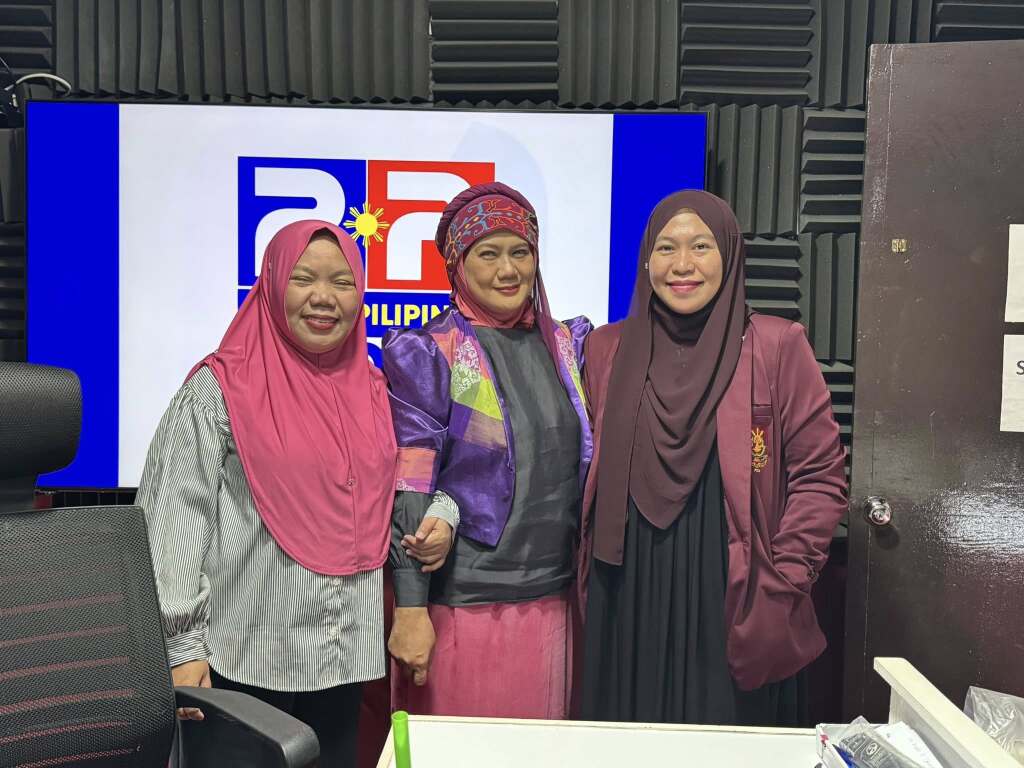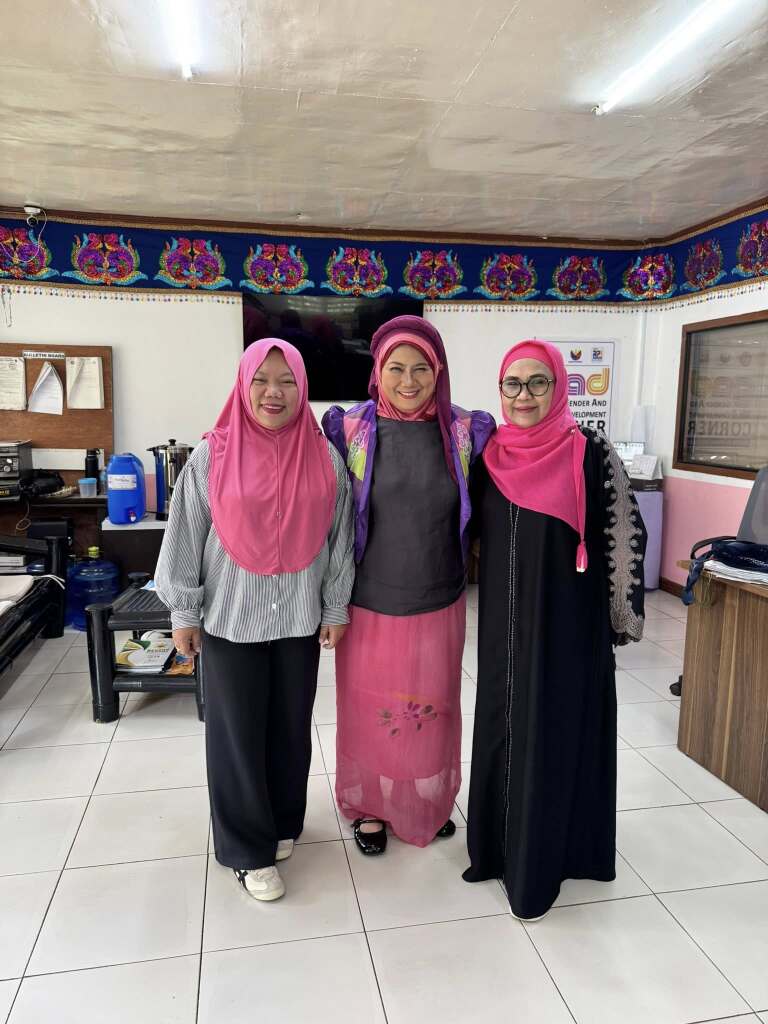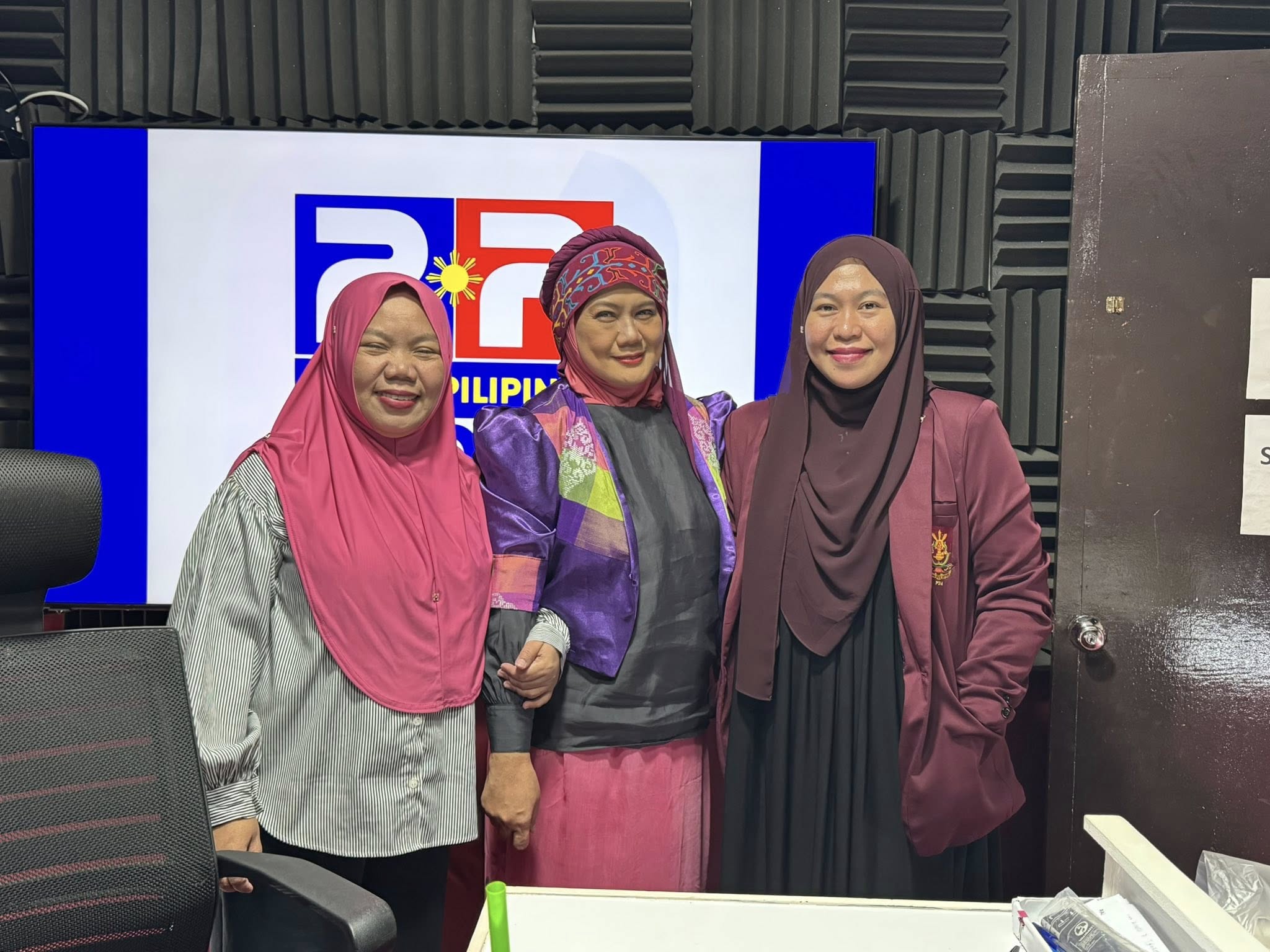Aliah Pacalna Cali-Pascan, DPA, JD
MSU MARAWI CITY, Bangsamoro Autonomous Region in Muslim Mindanao – In a recent and highly anticipated “Peace Conversation” today at Radyo Pilipinas Marawi, 3pm-4pm, hosted by the ShuaraMSU program, prominent peace advocate and former legislator Director Samira Gutoc offered profound insights into the legislative philosophy of Senator Robin Padilla. The engaging discussion, facilitated by Dr. Aliah P. Cali-Pascan and Dr. Khayronesah Abbas of the Institute for Peace and Development (IPDM) at Mindanao State University (MSU) Marawi, in partnership with Radyo Pilipinas Marawi, underscored Senator Padilla’s commitment to laws born from direct experience and a deep understanding of the Bangsamoro people’s needs. According to Dir. Gutoc, Senator Padilla’s legislative initiatives are far from abstract concepts; they are tangible responses to lived realities. “His legislative actions are based on experiences,” Dir. Gutoc emphasized, noting his family ties to former Senator Ambrosio Padilla, which suggests a lineage of public service and a keen awareness of governance. Dir. Gutoc recounted her first encounter with the then-actor-turned-public servant during his visit to Marawi. “I knew him when he visited Marawi, I was hosting a local TV show and radio program, he was the guest,” she shared, highlighting the immediate connection he forged with the community. Even then, his popularity necessitated security measures as they moved through public spaces. His closeness to prominent families, such as the Domado family, further underscores his deep roots within the Bangsamoro.
Senator Padilla’s dedication to addressing critical issues through legislative measures is evident in several key bills he has authored. Dir. Gutoc lauded his efforts to champion the inclusion of Bangsamoro history in educational curricula. “Bangsamoro history is important as you will know your roots,” she stressed, underscoring the vital role of identity and heritage in nation-building. The proposed creation of the Province of Cotabato, another of Sen. Padilla’s initiatives, stems from a direct appeal from the province itself. Dir. Gutoc explained that the lobby for this legislative measure arose from the need for greater representation for the area. The expansion and subsequent digitalization of Shariah Courts are also significant milestones. Dir. Gutoc acknowledged that the push for digitalization was a natural progression following the expanded jurisdiction of these courts, as formalized by Republic Act No. 12018 (Expansion of Shariah Courts). She extended gratitude to Justice Dimaampao for his invaluable support in this endeavor, highlighting the collaborative spirit behind such crucial reforms. Even with the ongoing privatization of Hajj services, Dir. Gutoc assured that the National Commission on Muslim Filipinos (NCMF) will retain its influence, ensuring continued oversight and support for Muslim pilgrims. A significant stride towards inclusivity is the proposed “Balik Islam Commission,” which aims to provide dedicated representation for converts within the NCMF. “They need to support,” Dir. Gutoc affirmed, stressing the importance of recognizing and empowering this growing segment of the Muslim community.
Furthermore, Senator Padilla has championed the crucial need for public cemeteries for Muslims, particularly in Local Government Units with a dominant Muslim population. Dir. Gutoc cited a recent incident in Tarlac where Maranao kababayans faced difficulties in securing the immediate release of a deceased loved one. “Alhamdulillah, we explained to [the] private hospital [about] the laws like RA 12160, and they immediately release otherwise they will have sanctions,” she recounted, emphasizing the vital role of such legislation in protecting the rights and dignity of Muslim Filipinos. This incident powerfully illustrates the real-world impact of laws like Republic Act No. 12160 (Burial Muslims). Dir. Gutoc concluded by underscoring the broader imperative for institutions to actively engage in advocacy and lobbying efforts. “An institution must have an advocacy to be a support lobby so that many laws will be passed that are relevant in the society,” she urged, emphasizing that collective action is key to shaping a more just and responsive legal framework for all Filipinos.
Senator Padilla’s Agenda: A Cornerstone for Peace and Development in Bangsamoro Senator Robin Padilla’s legislative agenda, as illuminated by Director Samira Gutoc, demonstrates a strong and direct connection to fostering peace and sustainable development in the Bangsamoro Autonomous Region in Muslim Mindanao. His approach centers on translating the lived experiences and unique needs of the Bangsamoro people into concrete, impactful laws, thereby contributing to stability, inclusivity, and progress.
Firstly, the experience-driven nature of his legislation, deeply rooted in his personal connections and understanding of the Bangsamoro community, is fundamental for peace. Laws crafted from a direct understanding of local challenges and aspirations are more likely to be accepted, effectively implemented, and contribute to stability and development, minimizing friction that could undermine peace.
Secondly, his championing of including Bangsamoro history in educational curricula directly contributes to peace and development by fostering a stronger sense of identity and heritage. As Dir. Gutoc stressed, “Bangsamoro history is important as you will know your roots.” A unified and resilient populace, proud of its history and identity, is better positioned to overcome past grievances and build a shared, peaceful future.
Thirdly, initiatives like the proposed creation of the Province of Cotabato address the need for greater representation, a crucial element for peaceful governance. When communities feel adequately represented and empowered to address their unique needs, it mitigates feelings of marginalization, promotes equitable development, and de-escalates potential conflicts that can arise from a lack of voice.
Furthermore, the expansion and digitalization of Shariah Courts, formalized by Republic Act No. 12018, significantly bolster peace and development by improving access to justice for Muslim Filipinos. Efficient and accessible legal systems are vital for upholding the rule of law, peacefully resolving disputes, and building trust in government institutions. The digitalization aspect specifically enhances development through modernized, efficient, and transparent services.
A critical stride towards inclusivity is the proposed “Balik Islam Commission” within the NCMF. By providing dedicated representation and support for converts, this initiative promotes social cohesion and prevents marginalization, fostering a more inclusive society where all individuals feel valued and supported – an essential ingredient for lasting peace and equitable development. Lastly, Senator Padilla’s advocacy for public cemeteries for Muslims and the enforcement of laws like Republic Act No. 12160 (Burial Muslims) directly addresses a fundamental need and protects the dignity and rights of Muslim Filipinos.
The incident in Tarlac cited by Dir. Gutoc powerfully illustrates how such legislation prevents unnecessary distress and potential conflict arising from cultural and religious insensitivity. Ensuring basic religious and cultural rights are respected contributes significantly to social harmony and prevents grievances that could undermine peace. Dir. Gutoc’s concluding call for institutions to actively engage in advocacy and lobbying to pass “laws that are relevant in the society” encapsulates the broader imperative for sustainable peace and development. This emphasizes that a proactive and collaborative approach to lawmaking ensures the legal framework evolves to meet societal needs, address emerging challenges, and promote justice for all Filipinos.
The “Peace Conversation” at ShuaraMSU, hosted by Dr. Aliah P. Cali-Pascan and Dr. Khayronesah Abbas of the IPDM, and broadcast through Radyo Pilipinas Marawi managed by Baeshora Sarigala, served as a powerful platform to dissect the intricacies of legislative action and its profound implications for peace and development in the Bangsamoro and beyond. Senator Robin Padilla’s legislative journey, as illuminated by Dir. Samira Gutoc, paints a compelling picture of a public servant who not only understands the pulse of the people but is also committed to translating those needs into concrete, impactful laws. His work stands as a testament to the power of experience-driven legislation in fostering peace and development, particularly within the Bangsamoro.
Sources: www.pna.gov.ph, www.senate.gov.ph, en.wikepedia.org.



